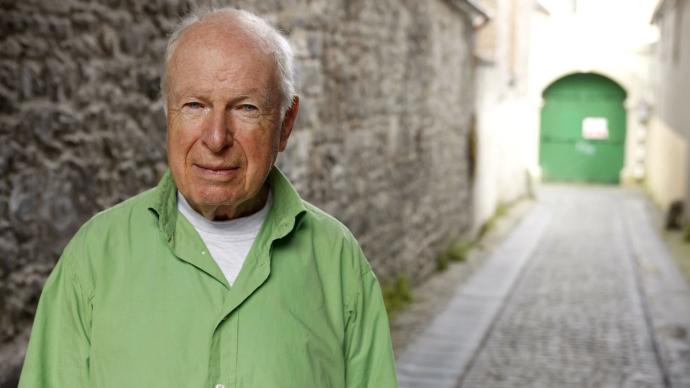
Peter Brook is a world-renowned theater and film director. Born in London, England, he is also a representative of modern stage plays in the 1950s and 1960s. He has a profound influence on the development of theater in the 20th century and is recognized as one of the most important Western theaters today. One of the most important directors in the world. His drama theory book "Empty Space" is a must-read for students of drama academy. He was the director-in-residence of the Royal Shakespeare Theatre in the United Kingdom, and then went to Paris, France to establish the International Drama Research Center to conduct drama experiments.
On July 3, 2022, Peter Brook passed away at the age of 97. Although he had several opportunities, he never visited China in his life. However, several works in his later years, "The Lover's Clothes", "The Valley of Surprise" and "Why?" " were invited to perform in China. Many Chinese drama people, including the great director Lin Zhaohua, were influenced and inspired by Peter Brook. The death of this master is also considered to be the end of an era.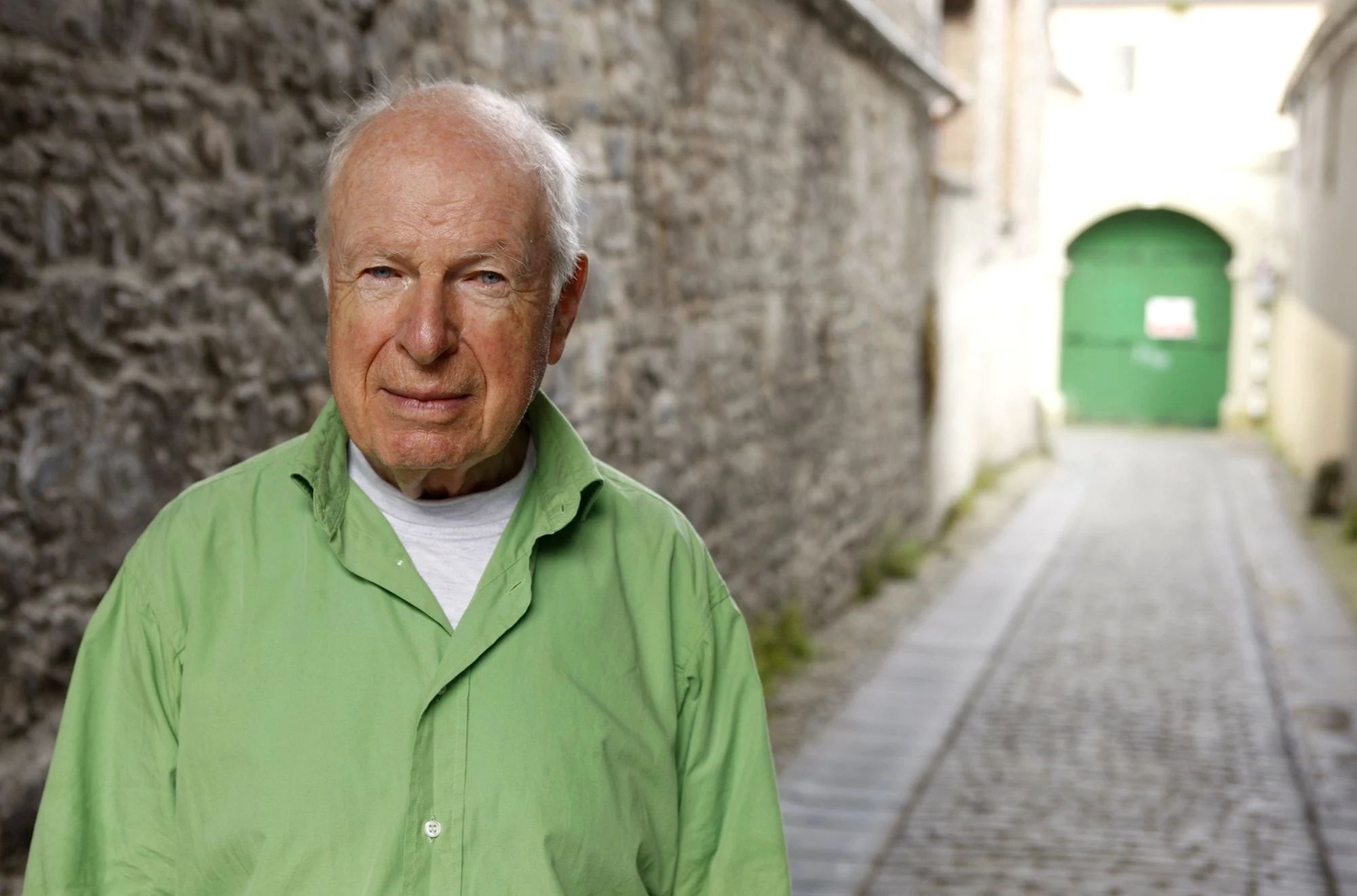
After receiving the news of Peter Brook's passing, Lai Shengchuan, a famous director of the Chinese-language theatre industry, wrote with emotion: "There is one less master in the international theatre world." Lai Shengchuan said that he was very sad and his emotions were complicated. "Although I have not been his student directly, in my mind, he has always been the most respected figure in our director industry. What we respect is talent, openness of mind, diversity of works, and depth of works. and concern for the world and humanity."
Lai Shengchuan recalled that he had seen these qualities in his works since he was very young, and he also listed them as his direction and goal.
"His directing style and dramatic form are constantly evolving. I have enjoyed watching it over the years, and I understand it very well: it's not that he wants to play tricks and keep changing the way. It's that he naturally thinks of some different expressions according to different themes. Time and space have no limits to him.
"Since he was in his 20s, he appeared in the Royal Shakespeare Company as a prodigy. He directed "A Midsummer Night's Dream" in 1970, using circus elements and an all-white stage, which impressed me a lot. I heard about it later. He did a performance of "Mahabharata" in Iran that spanned three days, and the audience had to walk with it for 9 hours. Although I didn't think of it in my mind when I created "Dream Like a Dream" The Mahabharata. But I'm sure, because he did it and left an imprint on my mind, at least knowing that it was something that could be done."
Lai Shengchuan also talked about the fate of Wuzhen Theatre Festival and Peter Brook. "We established the Wuzhen Theatre Festival, and invited Mr. Brook to be the honorary chairman. We also invited two of his works "The Valley of Wonder" and "Why?" to come to Wuzhen successively. These are the works of the master after he was in his 90s. He was deeply moved, because he returned to the most basic elements of the theater: the actors and the audience on the stage. There are only three actors in the "Why?" performance. Basically, one light is given, and the three people tell the story on the stage. The story is over. , the play is also over. Is this a drama or a story? Brooke's 90-year-old work is here. He seems to be teaching us, too, to do such a complex, such a long, such "immersive" drama. After messing around, can we calm down and make the simplest, no set, no projection, no decoration, only the performance of the actors in front of the audience? "Why?" returns to the essence of the theater. I think I was greatly inspired. Later, through his executive director, Mary Helen, I also received a letter from him saying, "Dear Stan, I heard from Mary Helen today, 'Why? "The beautiful and unforgettable days the crew spent in Wuzhen, I feel very close to you, and thank you for everything you have done for us. Thank you from the bottom of my heart, Peter. "
"Goodbye, Mr. Brooke! You wrote a new grammar for the Theater of the World and took it to a new level. We are forever grateful. Always remembered."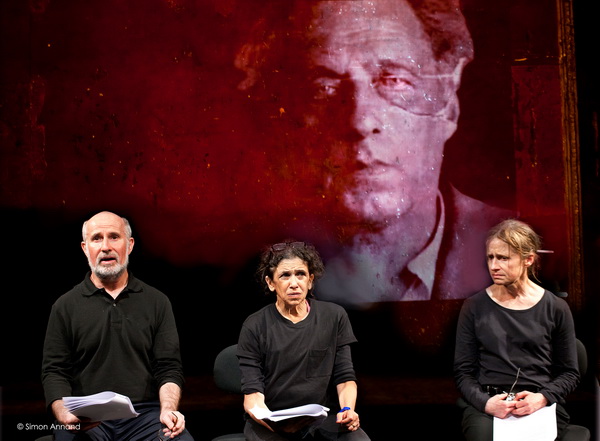
"I think Peter Brook is another mentor of world theatre after Aalto. His death is also the end of an era." Shi Jun, associate professor of the Department of Directing at Shanghai Theater Academy, was the first drama person in China to come into contact with Peter Brook. , has been teaching the course of "Western Modern Drama Director Research" in Shanghai Theatre for many years. In the past 20 years, many people have learned about Peter Brook through his course.
In Shi Jun's view, Peter Brook is one of the most influential Western directors in contemporary Chinese drama, besides him, Robert Wilson, Schekner and Grotowski. Peter Brook is also the eldest of them. His "Empty Space" and "Open Doors", as well as his autobiography and interviews translated and published in recent years, have far-reaching influence.
Although "Empty Space" is Peter Brook's early dramatic essays, in the 1990s, the shock it brought to the Chinese theater world can be said to be instilling. Because after the opening in the 1980s, Chinese people found that their vision of theatre was narrow, and the theatre industry was once faced with great difficulties. And Peter Brook has given a lot of inspiration to the Chinese drama world, he made us abandon a lot of things of the past. We used to be too heavy-lifting in acting, because it was difficult to move forward with the weight. He tells us that what perishes is the ossified drama and what is to be protected is the sacred drama. He opened up the space for creation and viewing of Chinese dramas, and to a certain extent, he opened up our closure. "
When he was studying in Europe before, Shi Jun was quite shocked by Peter Brook's influence on European and even world theatre. In the famous art bookstore on Lindenstrasse in Berlin, Germany, his works occupy two entire rows of bookshelves, while the works of Brecht and Steiny, which are familiar to Chinese drama people, are only a few.
"I think Peter Brook has two characteristics, one is his inheritance of traditional European drama, and the other is his openness and tolerance to modern and contemporary drama." Shi Jun said that Peter Brook graduated from a super famous school such as Oxford University, At the age of 18 or 19, he began to rehearse Shakespeare plays. Later, he created super-influential works such as "Mahabharata" and "Maha/Sade". "Mahabharata" was based on the Indian epic and was performed in an open-air theater for 9 hours, setting a record. "Maha/Sade" was even made into a movie, with the "Death of Marat" as the background, using the triple structure of the play within the play and the play within the play, it is a creation related to the French Revolution.
"While inheriting the tradition, his creations can also see the shadows of Brecht and Aalto, and in the later period, like many masters, they have all moved towards the world of dramatic anthropology, including his later rehearsal in South Africa. The protagonist of "Hamlet" is black, and Ophelia is of Indian descent, and he explores the drama with the fusion and collision of multiple races.
"Peter Brook is not a master of a system, but an open master. His works seem to have no creative trajectory to follow, but they are always open. A lot of his influence on Chinese drama is ideological, and it can be said that he is for China Drama opens up space."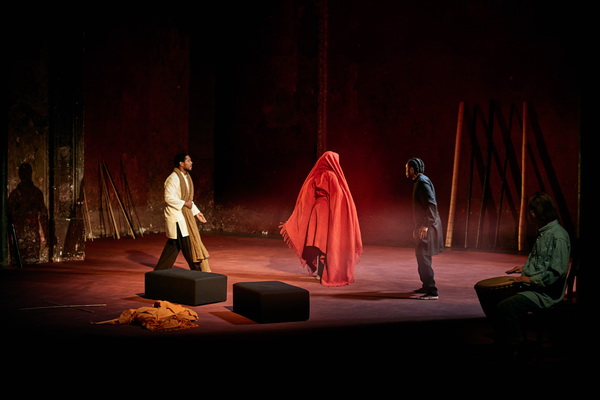
Peter Brook has a deep relationship with the famous Chinese director Lin Zhaohua. As the first dramatist who introduced Peter Brook to China, Lin Zhaohua believes that he is the real drama master. In China, Peter Brook's theoretical works were first translated and introduced, making him the contemporary drama director who has the most profound influence on Chinese modern drama creation. Lin Zhaohua has always had a desire to introduce Peter Brook's works into China.
In 1993, Lin Zhaohua met Peter Brook for the first time in Paris, when he had just watched Shakespeare's "The Tempest" directed by him. Peter Brook asked Lin Zhaohua how he felt? Lin Zhaohua said: "Your play has many elements of oriental drama." Later, Lin Zhaohua had to meet Peter Brook every time he went to France. Once, Lin Zhaohua visited Peter Brook's ancient theater in France. Unlike the renovation of ancient buildings into luxury theaters in China, Peter Brook retained the original appearance of the theater without even whitewashing the walls. One year at the Avignon Theatre Festival, Lin Zhaohua said to Peter Brook: "All the Chinese theatre circles have read your Empty Space." As a result, Peter Brook joked, "You go back and throw it away." 2000 In 2009, Lin Zhaohua watched Peter Brooke's play "Beckett Fragments" in the UK and was moved by the simplicity and simplicity of the play. After the play, Peter Brook asked Lin Zhaohua to meet the actors backstage. During the exchange, Lin Zhaohua invited Peter Brook to perform in China, and Brook agreed immediately, saying: OK! As a result, Lin Zhaohua, who is in his seventies, and Brooke, who is in his eighties, hit it off and pulled the hook.
In order to introduce the works of Peter Brook, Lin Zhaohua also went through a setback. At first, when Lin Zhaohua talked about this with a certain theater leader, he was pushed back by one sentence: "Why do you want to invite him?" Later, he finally invited Peter Brook. But the performance is about to start, and the approval document has not been obtained. Without the approval document, the ticket cannot be sold. Fortunately, Peter Brook's "Lover's Clothes" finally performed successfully in Beijing.
In 2012, Peter Brook's work was shown in China for the first time. "The Lover's Clothes" was staged at the National Museum of China as the major work of the "2012 Lin Zhaohua Invitational Drama Exhibition", and it also became a grand gathering for the collective observation and study of Chinese drama circles. Unfortunately, 87-year-old Peter Brook was unable to come to China due to health reasons. In his letter to Lin Zhaohua, he wrote: "I deeply regret that I could not make this trip to China due to my health problems. But my desire is stronger than ever, and as you said, I sincerely hope that in the future there will be The opportunity is here." Since then, Peter Brook was also hired as the honorary chairman of the 3rd Wuzhen Theatre Festival, and performed his new work "Valley of Wonders" in the closing drama, and performed another of his other works at the 7th Wuzhen Theatre Festival. The work "Why? ".
Peter Brook is a director known for his experiments, and in his early days working in the traditional British Shakespeare theatre, he often found something new in the theatre. At the New Vic Theatre, Lin Zhaohua met Peter Brook and watched his "Beckett Fragments". The stage at that time was the bare theater of the new Vic, two large garbage bags, and a chair. "Two male actors and one actress are so charming. I won't write a director's review article, but if I do, I will definitely be able to write a doctoral dissertation." Lin Zhaohua commented on him.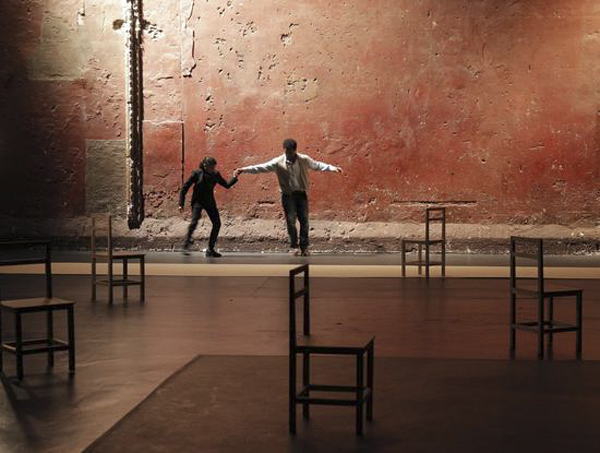
On July 3, 2022, Peter Brook passed away at the age of 97. Although he had several opportunities, he never visited China in his life. However, several works in his later years, "The Lover's Clothes", "The Valley of Surprise" and "Why?" " were invited to perform in China. Many Chinese drama people, including the great director Lin Zhaohua, were influenced and inspired by Peter Brook. The death of this master is also considered to be the end of an era.

Peter Brooke
Lai Shengchuan: He wrote a new grammar for the World TheaterAfter receiving the news of Peter Brook's passing, Lai Shengchuan, a famous director of the Chinese-language theatre industry, wrote with emotion: "There is one less master in the international theatre world." Lai Shengchuan said that he was very sad and his emotions were complicated. "Although I have not been his student directly, in my mind, he has always been the most respected figure in our director industry. What we respect is talent, openness of mind, diversity of works, and depth of works. and concern for the world and humanity."
Lai Shengchuan recalled that he had seen these qualities in his works since he was very young, and he also listed them as his direction and goal.
"His directing style and dramatic form are constantly evolving. I have enjoyed watching it over the years, and I understand it very well: it's not that he wants to play tricks and keep changing the way. It's that he naturally thinks of some different expressions according to different themes. Time and space have no limits to him.
"Since he was in his 20s, he appeared in the Royal Shakespeare Company as a prodigy. He directed "A Midsummer Night's Dream" in 1970, using circus elements and an all-white stage, which impressed me a lot. I heard about it later. He did a performance of "Mahabharata" in Iran that spanned three days, and the audience had to walk with it for 9 hours. Although I didn't think of it in my mind when I created "Dream Like a Dream" The Mahabharata. But I'm sure, because he did it and left an imprint on my mind, at least knowing that it was something that could be done."
Lai Shengchuan also talked about the fate of Wuzhen Theatre Festival and Peter Brook. "We established the Wuzhen Theatre Festival, and invited Mr. Brook to be the honorary chairman. We also invited two of his works "The Valley of Wonder" and "Why?" to come to Wuzhen successively. These are the works of the master after he was in his 90s. He was deeply moved, because he returned to the most basic elements of the theater: the actors and the audience on the stage. There are only three actors in the "Why?" performance. Basically, one light is given, and the three people tell the story on the stage. The story is over. , the play is also over. Is this a drama or a story? Brooke's 90-year-old work is here. He seems to be teaching us, too, to do such a complex, such a long, such "immersive" drama. After messing around, can we calm down and make the simplest, no set, no projection, no decoration, only the performance of the actors in front of the audience? "Why?" returns to the essence of the theater. I think I was greatly inspired. Later, through his executive director, Mary Helen, I also received a letter from him saying, "Dear Stan, I heard from Mary Helen today, 'Why? "The beautiful and unforgettable days the crew spent in Wuzhen, I feel very close to you, and thank you for everything you have done for us. Thank you from the bottom of my heart, Peter. "
"Goodbye, Mr. Brooke! You wrote a new grammar for the Theater of the World and took it to a new level. We are forever grateful. Always remembered."

"why? "Stills
Shi Jun: He opened up space for Chinese drama"I think Peter Brook is another mentor of world theatre after Aalto. His death is also the end of an era." Shi Jun, associate professor of the Department of Directing at Shanghai Theater Academy, was the first drama person in China to come into contact with Peter Brook. , has been teaching the course of "Western Modern Drama Director Research" in Shanghai Theatre for many years. In the past 20 years, many people have learned about Peter Brook through his course.
In Shi Jun's view, Peter Brook is one of the most influential Western directors in contemporary Chinese drama, besides him, Robert Wilson, Schekner and Grotowski. Peter Brook is also the eldest of them. His "Empty Space" and "Open Doors", as well as his autobiography and interviews translated and published in recent years, have far-reaching influence.
Although "Empty Space" is Peter Brook's early dramatic essays, in the 1990s, the shock it brought to the Chinese theater world can be said to be instilling. Because after the opening in the 1980s, Chinese people found that their vision of theatre was narrow, and the theatre industry was once faced with great difficulties. And Peter Brook has given a lot of inspiration to the Chinese drama world, he made us abandon a lot of things of the past. We used to be too heavy-lifting in acting, because it was difficult to move forward with the weight. He tells us that what perishes is the ossified drama and what is to be protected is the sacred drama. He opened up the space for creation and viewing of Chinese dramas, and to a certain extent, he opened up our closure. "
When he was studying in Europe before, Shi Jun was quite shocked by Peter Brook's influence on European and even world theatre. In the famous art bookstore on Lindenstrasse in Berlin, Germany, his works occupy two entire rows of bookshelves, while the works of Brecht and Steiny, which are familiar to Chinese drama people, are only a few.
"I think Peter Brook has two characteristics, one is his inheritance of traditional European drama, and the other is his openness and tolerance to modern and contemporary drama." Shi Jun said that Peter Brook graduated from a super famous school such as Oxford University, At the age of 18 or 19, he began to rehearse Shakespeare plays. Later, he created super-influential works such as "Mahabharata" and "Maha/Sade". "Mahabharata" was based on the Indian epic and was performed in an open-air theater for 9 hours, setting a record. "Maha/Sade" was even made into a movie, with the "Death of Marat" as the background, using the triple structure of the play within the play and the play within the play, it is a creation related to the French Revolution.
"While inheriting the tradition, his creations can also see the shadows of Brecht and Aalto, and in the later period, like many masters, they have all moved towards the world of dramatic anthropology, including his later rehearsal in South Africa. The protagonist of "Hamlet" is black, and Ophelia is of Indian descent, and he explores the drama with the fusion and collision of multiple races.
"Peter Brook is not a master of a system, but an open master. His works seem to have no creative trajectory to follow, but they are always open. A lot of his influence on Chinese drama is ideological, and it can be said that he is for China Drama opens up space."

"The Mahabharata" stills
Lin Zhaohua: He is the real drama masterPeter Brook has a deep relationship with the famous Chinese director Lin Zhaohua. As the first dramatist who introduced Peter Brook to China, Lin Zhaohua believes that he is the real drama master. In China, Peter Brook's theoretical works were first translated and introduced, making him the contemporary drama director who has the most profound influence on Chinese modern drama creation. Lin Zhaohua has always had a desire to introduce Peter Brook's works into China.
In 1993, Lin Zhaohua met Peter Brook for the first time in Paris, when he had just watched Shakespeare's "The Tempest" directed by him. Peter Brook asked Lin Zhaohua how he felt? Lin Zhaohua said: "Your play has many elements of oriental drama." Later, Lin Zhaohua had to meet Peter Brook every time he went to France. Once, Lin Zhaohua visited Peter Brook's ancient theater in France. Unlike the renovation of ancient buildings into luxury theaters in China, Peter Brook retained the original appearance of the theater without even whitewashing the walls. One year at the Avignon Theatre Festival, Lin Zhaohua said to Peter Brook: "All the Chinese theatre circles have read your Empty Space." As a result, Peter Brook joked, "You go back and throw it away." 2000 In 2009, Lin Zhaohua watched Peter Brooke's play "Beckett Fragments" in the UK and was moved by the simplicity and simplicity of the play. After the play, Peter Brook asked Lin Zhaohua to meet the actors backstage. During the exchange, Lin Zhaohua invited Peter Brook to perform in China, and Brook agreed immediately, saying: OK! As a result, Lin Zhaohua, who is in his seventies, and Brooke, who is in his eighties, hit it off and pulled the hook.
In order to introduce the works of Peter Brook, Lin Zhaohua also went through a setback. At first, when Lin Zhaohua talked about this with a certain theater leader, he was pushed back by one sentence: "Why do you want to invite him?" Later, he finally invited Peter Brook. But the performance is about to start, and the approval document has not been obtained. Without the approval document, the ticket cannot be sold. Fortunately, Peter Brook's "Lover's Clothes" finally performed successfully in Beijing.
In 2012, Peter Brook's work was shown in China for the first time. "The Lover's Clothes" was staged at the National Museum of China as the major work of the "2012 Lin Zhaohua Invitational Drama Exhibition", and it also became a grand gathering for the collective observation and study of Chinese drama circles. Unfortunately, 87-year-old Peter Brook was unable to come to China due to health reasons. In his letter to Lin Zhaohua, he wrote: "I deeply regret that I could not make this trip to China due to my health problems. But my desire is stronger than ever, and as you said, I sincerely hope that in the future there will be The opportunity is here." Since then, Peter Brook was also hired as the honorary chairman of the 3rd Wuzhen Theatre Festival, and performed his new work "Valley of Wonders" in the closing drama, and performed another of his other works at the 7th Wuzhen Theatre Festival. The work "Why? ".
Peter Brook is a director known for his experiments, and in his early days working in the traditional British Shakespeare theatre, he often found something new in the theatre. At the New Vic Theatre, Lin Zhaohua met Peter Brook and watched his "Beckett Fragments". The stage at that time was the bare theater of the new Vic, two large garbage bags, and a chair. "Two male actors and one actress are so charming. I won't write a director's review article, but if I do, I will definitely be able to write a doctoral dissertation." Lin Zhaohua commented on him.

"Valley of Wonder" stills
Related Posts